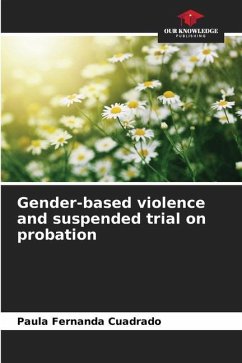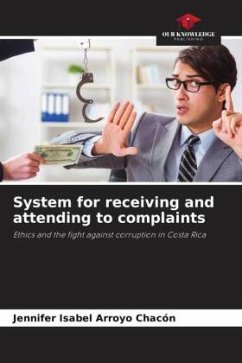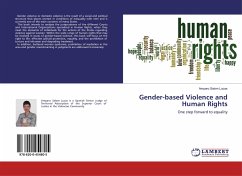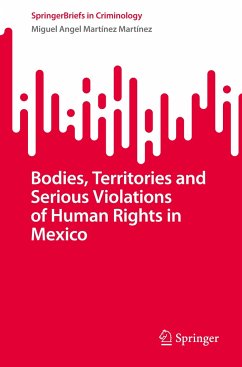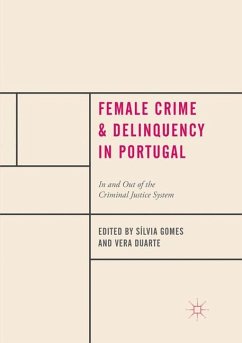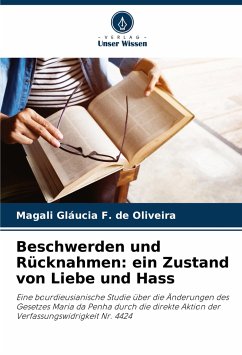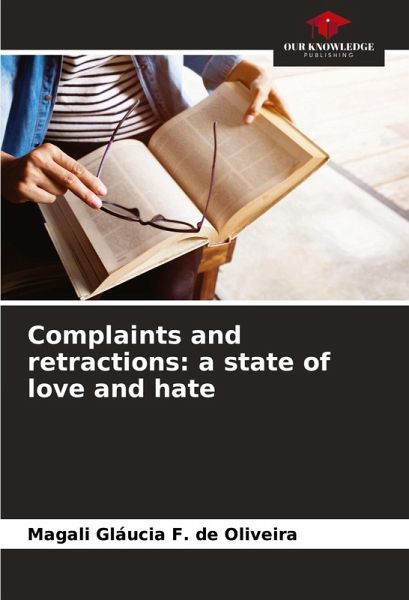
Complaints and retractions: a state of love and hate
Versandkostenfrei!
Versandfertig in 6-10 Tagen
41,99 €
inkl. MwSt.

PAYBACK Punkte
21 °P sammeln!
The central aim of this book is to analyse ADI 4424, which made the criminal prosecution of the crime of bodily injury committed in the domestic or family sphere against women unconditional. In this way, it seeks to ascertain whether the Supreme Court's new position is necessary for the realisation of the fundamental right to gender equality, in the face of the machismo ingrained in Brazilian society, or whether it is a usurpation of women's autonomy and their right to choose. The final objective is to demonstrate, based on the work of Pierre Bourdieu, that the complaint is a strong symbolic c...
The central aim of this book is to analyse ADI 4424, which made the criminal prosecution of the crime of bodily injury committed in the domestic or family sphere against women unconditional. In this way, it seeks to ascertain whether the Supreme Court's new position is necessary for the realisation of the fundamental right to gender equality, in the face of the machismo ingrained in Brazilian society, or whether it is a usurpation of women's autonomy and their right to choose. The final objective is to demonstrate, based on the work of Pierre Bourdieu, that the complaint is a strong symbolic capital in the hands of women and that the impossibility of withdrawing the representation made against the partner, perhaps, from the victim's point of view, is not beneficial to the suppression of domestic violence, not least because it is through it that women have tried to succumb to their hyposufficiency before the man or put themselves on an equal level with him. To this end, bibliographical, documentary and field research was used, collecting data through interviews with a semi-structured script and observational research in a Specialised Court for Violence against Women in the city of Vila Velha/ES.







